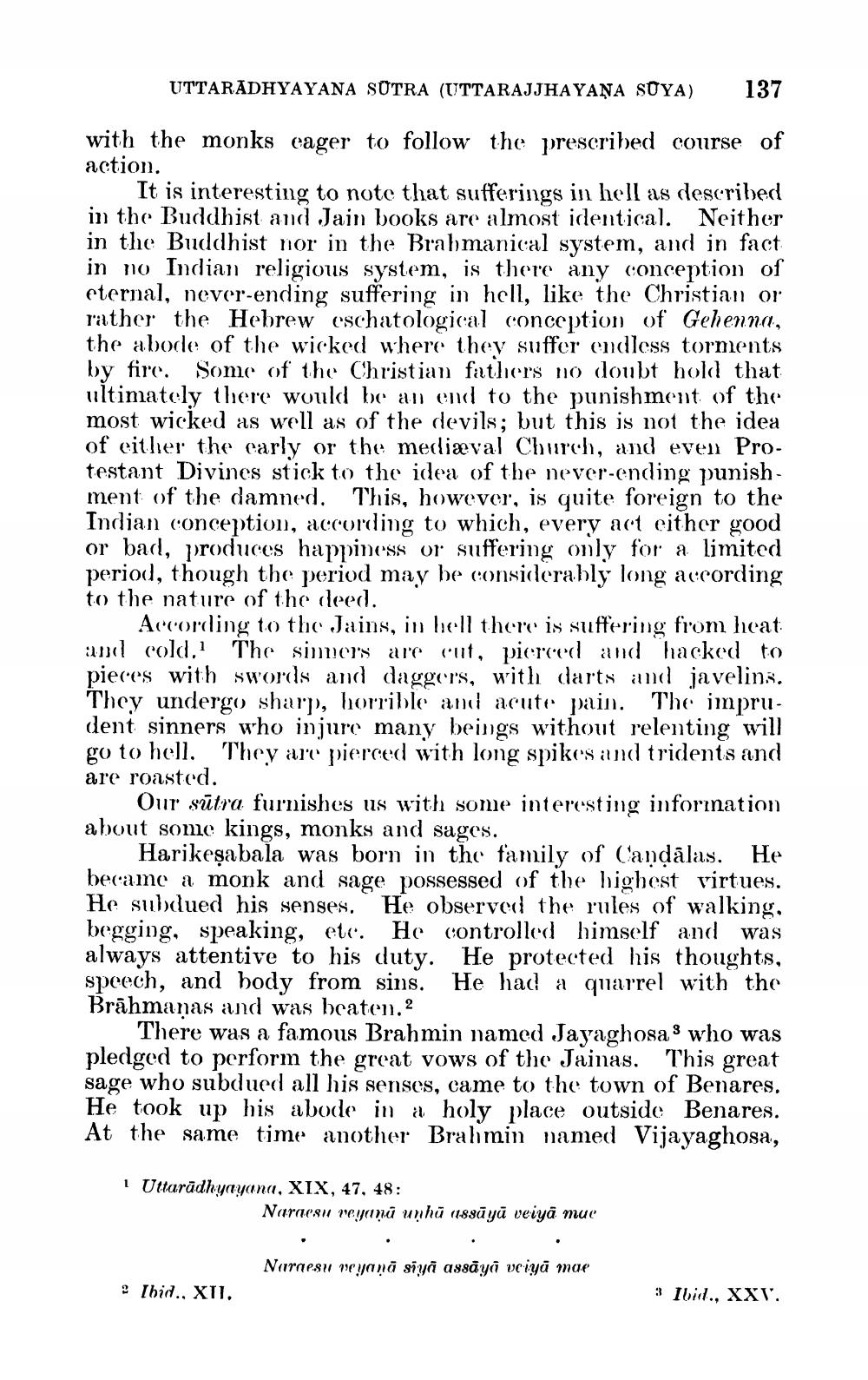________________
UTTARADHYAYANA SUTRA (UTTARAJJHAYAŅA SUYA)
137
with the monks eager to follow the prescribed course of action.
It is interesting to note that sufferings in hell as described in the Buddhist and Jain books are almost identical. Neither in the Buddhist nor in the Brahmanical system, and in fact in no Indian religious system, is there any conception of eternal, never-ending suffering in hell, like the Christian or rather the Hebrew eschatological conception of Gehenna, the abode of the wicked where they suffer endless torments by fire. Some of the Christian fathers no doubt hold that ultimately there would be an end to the punishment of the most wicked as well as of the devils; but this is not the idea of either the early or the mediaval Church, and even Protestant Divines stick to the idea of the never-ending punishment of the damned. This, however, is quite foreign to the Indian conception, according to which, every act either good or bad, produces happiness or suffering only for a limited period, though the period may be considerably long according to the nature of the deed.
According to the Jains, in hell there is suffering from heat and cold. The simers are cout, pierced and hacked to pieces with swords and daggers, with darts and javelins. They undergo sharp), horrible and acute pain. The imprudent sinners who injure many beings without relenting will go to hell. They are pierced with long spikes and tridents and are roasted.
Our sūtra furnishes us with some interesting information about some kings, monks and sages.
Harikeşabala was born in the family of Candālas. He became a monk and sage possessed of the bighest virtues. He subdued his senses. He observed the rules of walking, begging, speaking, etc. He controlled himself and was always attentive to his duty. He protected his thoughts, speech, and body from sins. He had a quarrel with the Brāhmaṇas and was beaten.
There was a famous Brahmin named Jayaghosa S who was pledged to perform the great vows of the Jainas. This great sage who subdued all his senses, came to the town of Benares. He took up his abode in a holy place outside Benares. At the same time another Brahmin named Vijayaghosa,
i Uttarādhyayana, XIX, 47, 48:
Naraesu veyanā unhū assāyā veiya mue
Naraesu veyaņā sīyā assāyā veiyā mae
2 Ibid., XII.
3 Ibid., XXV.




